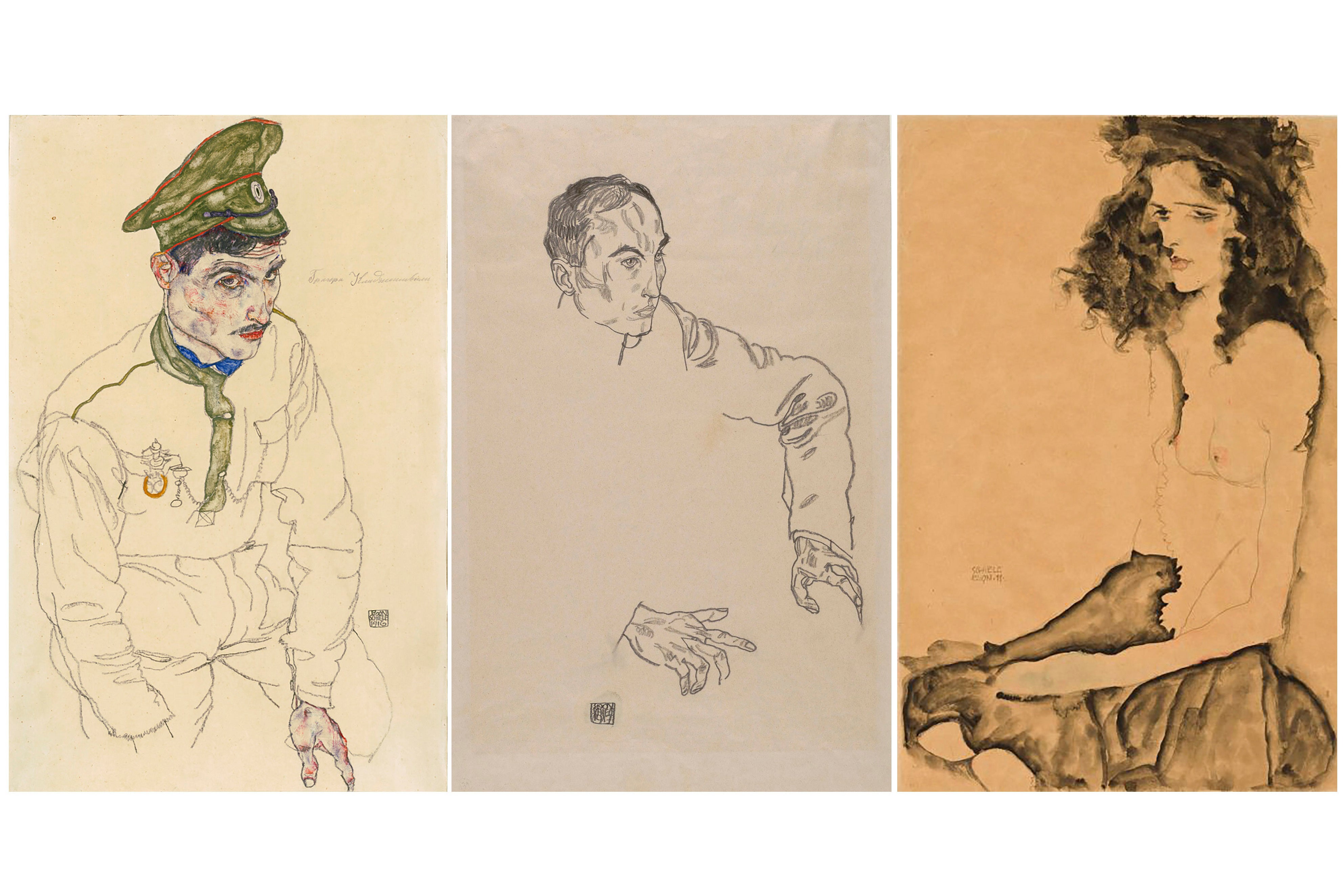2 artworks returned to heirs of Holocaust victim. Another is tied up in court
New York prosecutors say they have returned two more pieces of art to the heirs of a Jewish Holocaust victim

Your support helps us to tell the story
From reproductive rights to climate change to Big Tech, The Independent is on the ground when the story is developing. Whether it's investigating the financials of Elon Musk's pro-Trump PAC or producing our latest documentary, 'The A Word', which shines a light on the American women fighting for reproductive rights, we know how important it is to parse out the facts from the messaging.
At such a critical moment in US history, we need reporters on the ground. Your donation allows us to keep sending journalists to speak to both sides of the story.
The Independent is trusted by Americans across the entire political spectrum. And unlike many other quality news outlets, we choose not to lock Americans out of our reporting and analysis with paywalls. We believe quality journalism should be available to everyone, paid for by those who can afford it.
Your support makes all the difference.New York prosecutors on Friday returned two pieces of art they say were stolen by Nazis from a Jewish performer and collector murdered in the Holocaust.
The artworks were surrendered by museums in Pittsburgh and Ohio, but prosecutors are still fighting in court to recover third artwork by the same artist, Austrian expressionist Egon Schiele, that was seized from a Chicago museum at the same time.
On Friday in Manhattan, the estate of Holocaust victim Fritz Grünbaum accepted "Portrait of a Man,” which was surrendered by the Carnegie Museum of Art and "Girl with Black Hair,” surrendered by the Allen Memorial Art Museum at Oberlin College. Prosecutors have collectively valued the two pieces at around $2.5 million.
Ten of Schiele's works have now been returned to the family, but “Russian War Prisoner” remains at the Art Institute of Chicago, which maintains that it was legally acquired.
Grünbaum was the son of a Jewish art dealer and law school student who began performing in cabarets in Vienna in 1906. As the Nazis rose to power, he mocked them, once saying on a darkened stage, “I can’t see a thing, not a single thing; I must have stumbled into National Socialist culture.”
In 1938, he was captured by Nazi officials, who created a trail of paperwork. Manhattan prosecutors say they forced him to give power of attorney to his wife, and then forced her to sign away the art — including around 80 Schiele works — to Nazi officials. Some of the art was sold to fund the Nazi war effort, they say. Elizabeth and Fritz Grünbaum died in concentration camps.
Prosecutors say the works reappeared in 1956 in Switzerland, part of a shady art deal with members of the Nazi regime, that led to them being sold in New York galleries.
On Friday, one of Grünbaum's heirs thanked leaders at Oberlin College and the Carnegie Institute, saying they “did the right thing.”
“This is a victory for justice, and the memory of a brave artist, art collector, and opponent of Fascism,” said Timothy Reif, Grünbaum’s great-grandnephew and a federal judge in New York City, in a statement released by the office of Manhattan District Attorney Alvin Bragg. “As the heirs of Fritz Grünbaum, we are gratified that this man who fought for what was right in his own time continues to make the world fairer.”
A New York judge ruled in 2018 that other two works by Schiele had to be turned over to Grünbaum’s heirs under the Holocaust Expropriated Recovery Act, passed by Congress.
In that case, art dealer of Richard Nagy said he was the rightful owner of the works because Grünbaum’s sister-in-law had sold them after his death. But the judge in the case ruled that there was no evidence that Grünbaum had given them to her voluntarily, writing it was “a signature at gunpoint.”
The Art Institute of Chicago, however, disputes that. And it argues that “Russian War Prisoner," a pencil and watercolor piece, was legally acquired.
“We have done extensive research on the provenance history of this work and are confident in our lawful ownership of the piece,” said Art Institute of Chicago spokesperson Megan Michienzi.
Michienzi pointed to a prior 2010 ruling from another federal judge that she said “explicitly ruled that the Grünbaum’s Schiele art collection was ‘not looted’ and ‘remained in the Grünbaum family’s possession’ and was sold by Fritz Grünbaum’s sister-in-law.”
Reif and his relatives had been fighting in a separate federal civil court case for the return of the work. The Art Institute of Chicago had the case thrown out in November on technical grounds, successfully arguing that, unlike the Nagy case, the family had missed a lawsuit deadline under the Holocaust Expropriated Recovery Act.
After that case was dismissed, Bragg’s office earlier this month asked a Manhattan court to authorize the return of the artwork.